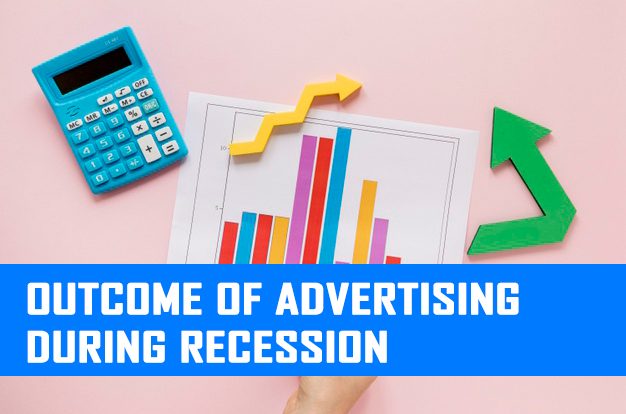
Marketing has a rule. The rule says ‘Never stop marketing’.
But there is always an exception. Now, the question is ‘Is recession an exception?’
The market is always flexible. It has its own high and lows. Recession is a period of temporary economic decline identified by GDP fall in two successive quarters. During the period, the industrial and trade activity is greatly reduced, generally identified by a fall in GDP in two successive quarters.
During a tough economy, marketers often cut advertising the deduction is logical – consider the discretionary cost involved during the period when the profits are declining. You might be wondering, how effective is the practice?
Take a moment to think if advertising is an investment or expenses.
Understanding the methods to evaluate your marketing during a period of recession helps one to maximize their advertising dollars during rough times.
Outcomes of Cutting Advertisement in a Recession
In some cases, the marketing efforts of the company becomes useless as customers won’t buy anything. Even the usual tricks of offering larger rebates, hefty discounts, and better customer service don’t work. In this case, no company would prefer to waste dollars in advertising, trying to convince the customers. Obviously, the quick return investment is low.
Often, cutting advertising leads to a decrease in sales. This further puts your business in jeopardy. Completely cutting the advertisement cost during a recession is a bad decision for the business. What you can do is reduce the cost.
The Outcome of Reducing Advertising in a Recession
When the budgets for marketing are tight, companies start to look for other free or low-cost alternatives. This includes more personal sales visits, increasing the use of social media, phone contact, in-store promotions. Act as sales, discounts, and increasing public relations efforts can be actually effective. Such a reduction is an ideal choice when the investment of business is low.
The Outcome of Increasing Advertising in a Recession
In general, business profits are reduced when the market is in recession. But those businesses that cut their expenditures in advertising lose no less in profitability than the ones who increase expenses by 10%. In simple words, cutting advertising expenses in order to increase short-term profits isn’t an effective business plan.
More importantly, research shows a moderate increase in advertising costs during regression can improve the share. For the aggressive marketer, a more ambitious addition in expenditure, although it reduces short-term profit, eventually makes a higher profit. The advantage of opportunities afforded during the period of recession increases market share even further.
As per research, consumer marketers who increasing their expenses by an average of 48% during regression win virtually twice the share gains than other businesses who uplift their expenditures more modestly. This aggressive advertising cost comes with a drop in ROI by 2.7% in the short term. But in the long term, the benefit is high. Also, advertisement during regression helps to build a better brand image and thus earns customer loyalty. Basically, it’s boon for marketers who is actually looking to post-recession growth.
Conclusion
During the time of recession, increasing the advertisement cost is effective in the long-run. It builds brand image and improves share value. The usual trend of lowering the cost or cutting it seems to have a negative effect on the business.
